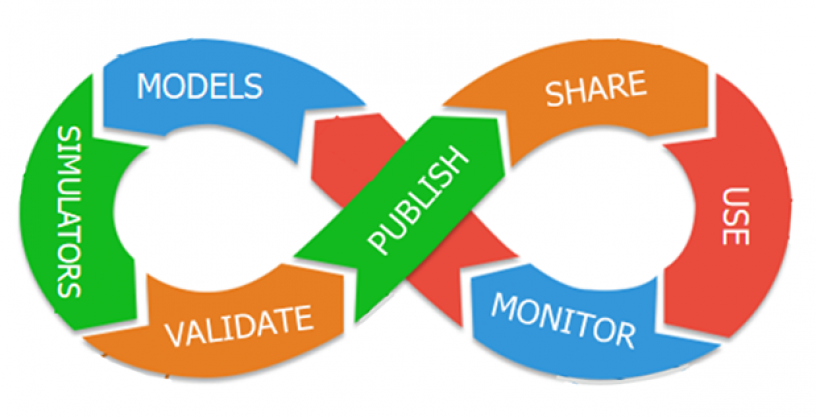
ASKEM performers will use AI to produce timelier and more reliable expert guidance
Sep 23, 2022
DARPA has selected multiple teams of researchers for the agency’s Automating Scientific Knowledge Extraction and Modeling (ASKEM) program. ASKEM performers will use artificial intelligence (AI) approaches and tools to create, sustain, and enhance complex models and simulators.
Resulting tools will enable experts to maintain, reuse, and adapt large collections of heterogeneous data, knowledge and models – with traceability across knowledge sources, model assumptions, and model fitness. Program performers will apply the models and simulators to various use cases with a focus on modeling of viral epidemics, such as COVID-19, and to the causes and impacts of space weather.
“If successful, ASKEM will allow scientists to adapt their expert modeling at the pace of the modern world,” said Dr. Joshua Elliott, ASKEM program manager in DARPA’s Information Innovation Office. “Our goal is to dramatically accelerate scientific and engineering advances, and improve the sorts of scientific collaboration that can lead to timelier and more reliable expert guidance to support threat detection, interventions, and decision-making, especially in rapidly evolving environments and mission-critical domains.”
ASKEM is a 42-month program divided into two phases of 21 months each. Phase 1 will focus on the program goals of improving the accuracy, timeliness, and maintainability of models. Phase 2 will add increased attention to the objectives of generalizability and scalability. Efforts to create and integrate technologies will span four major technical areas.
In the first area, the following performers will develop technology to extract and link knowledge and models from diverse inputs such as publications, code, structured data, etc.:
- University of Wisconsin-Madison’s Morgridge Center for Public Service, ETH Zurich
- Lum.ai, University of Arizona, SIFT, University of Utah
- Massachusetts Institute of Technology (MIT)
In the second area, the following performers will develop approaches to compose/decompose, compare, and sustain models:
- University of Florida, University of Colorado Denver, Topos Institute
- Harvard Medical School
The following performers contracted for the third area will develop tools for creating complex model simulators, including multi-model workflows, validation, and inverse problems, such as calibration and causal inference:
- Julia Computing, MIT
- University of Pittsburgh
- Pacific Northwest National Laboratory, Basis, University of Texas at Austin
Finally, the following performers will build a visual meta-modeling platform to bring these tools together into an integrated modeling and simulation workbench:
- Uncharted Software Inc., Jataware
